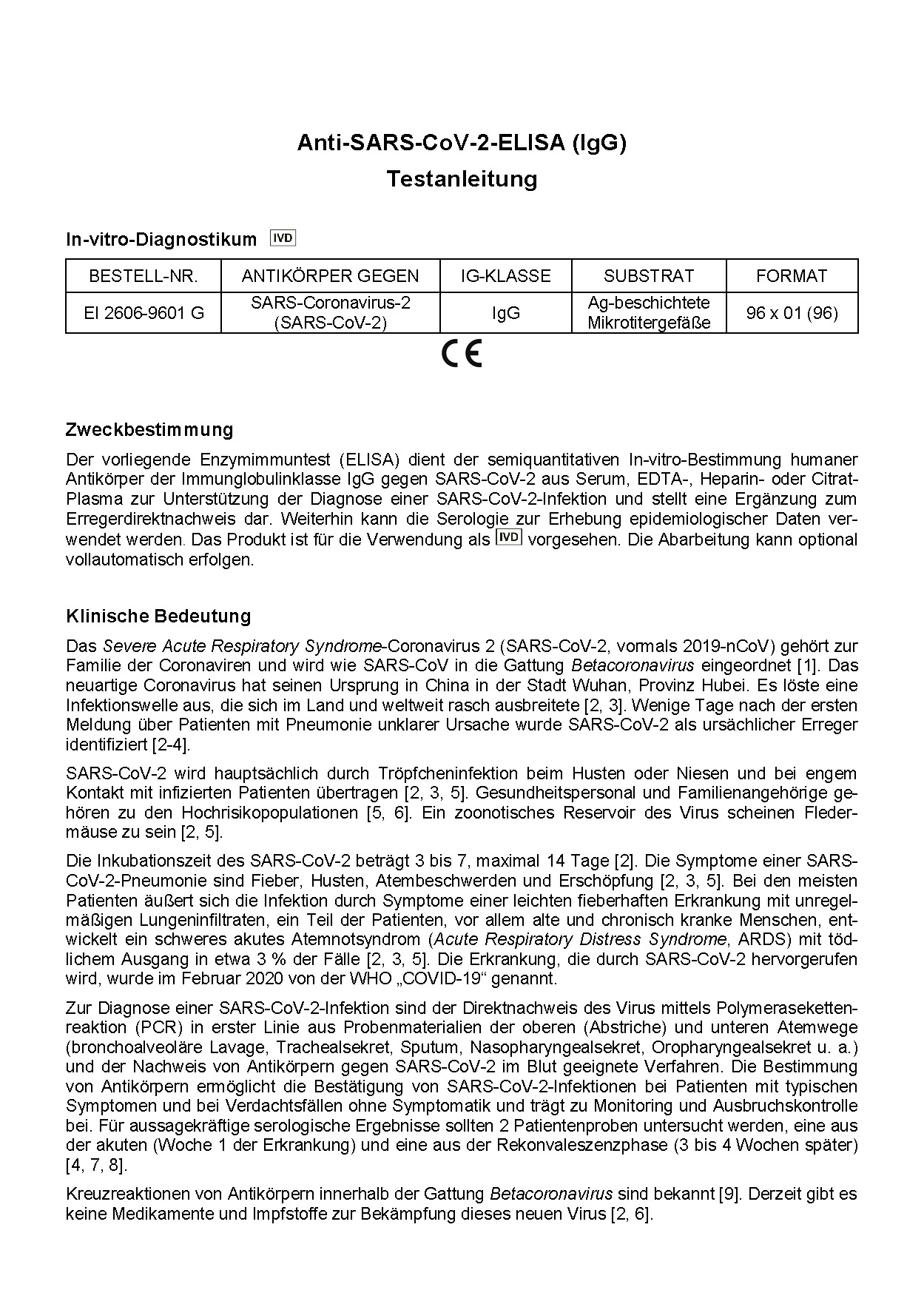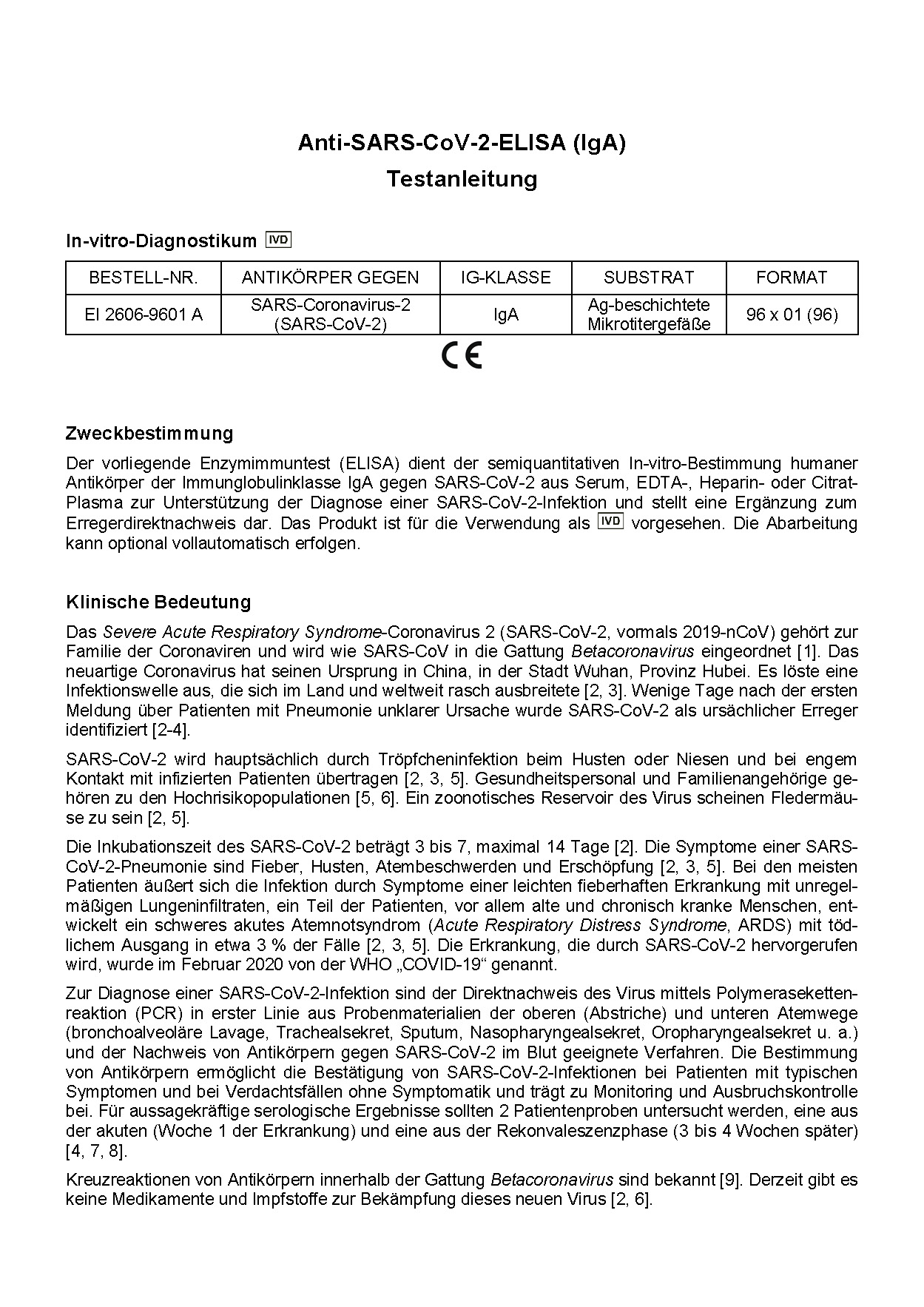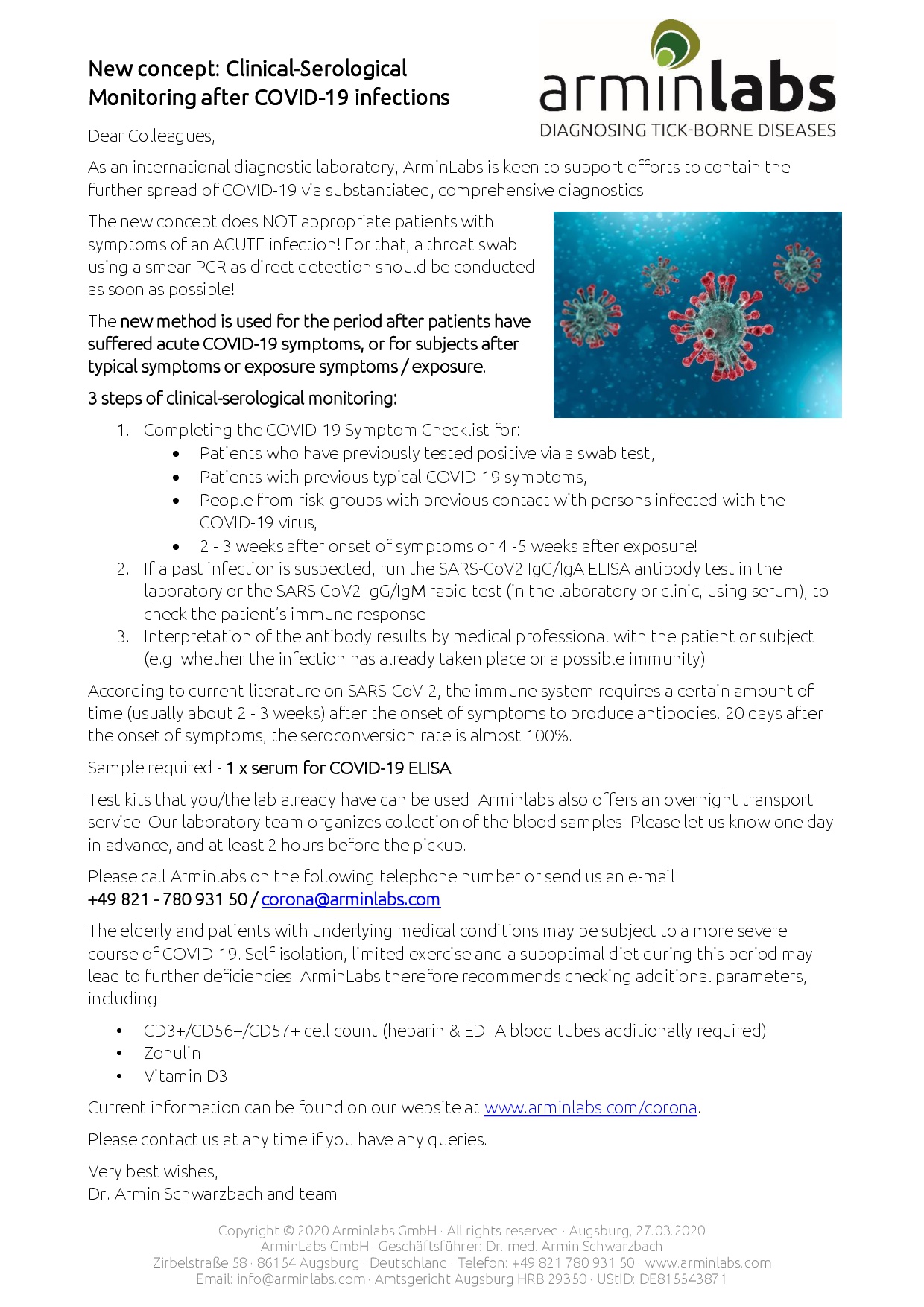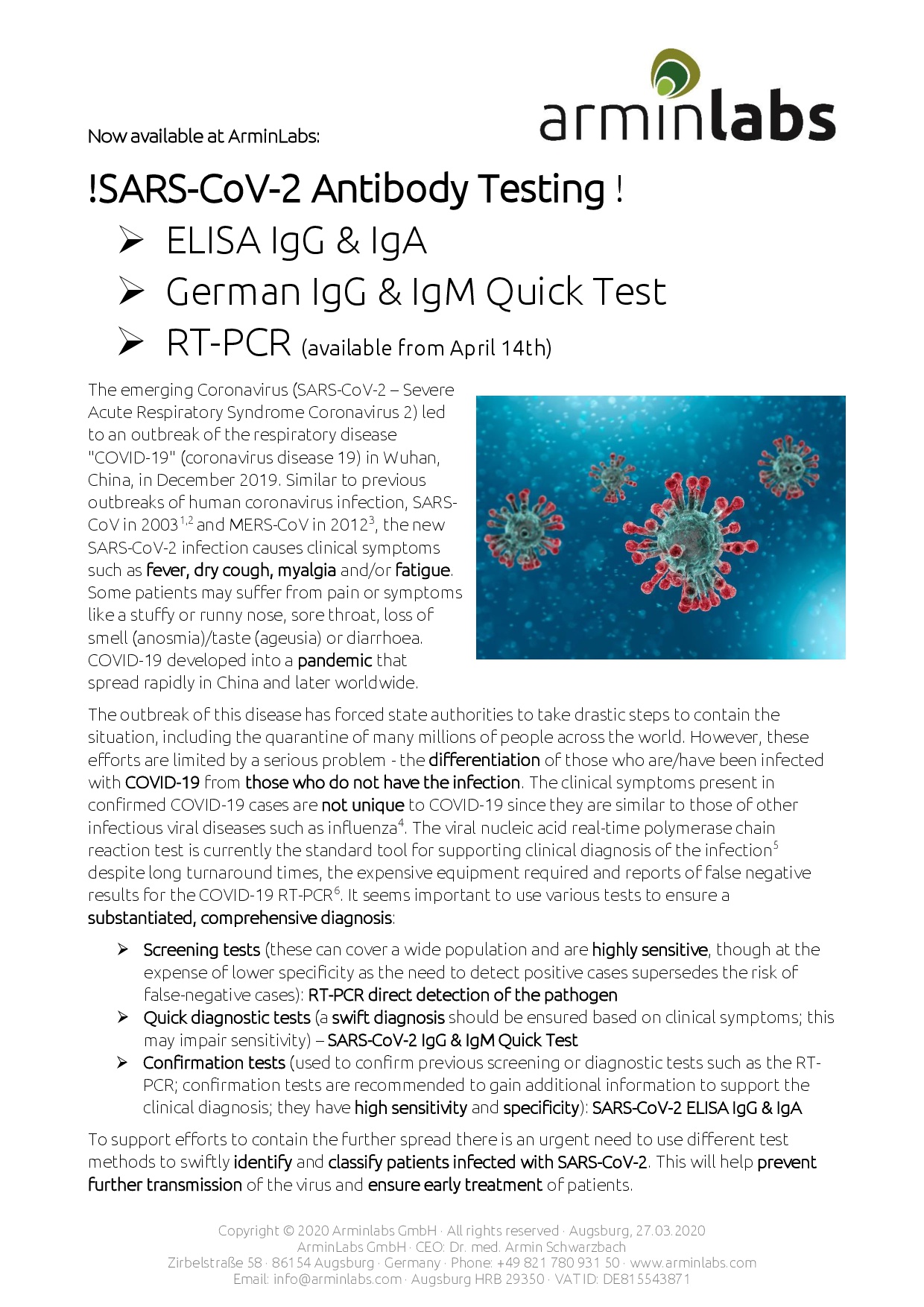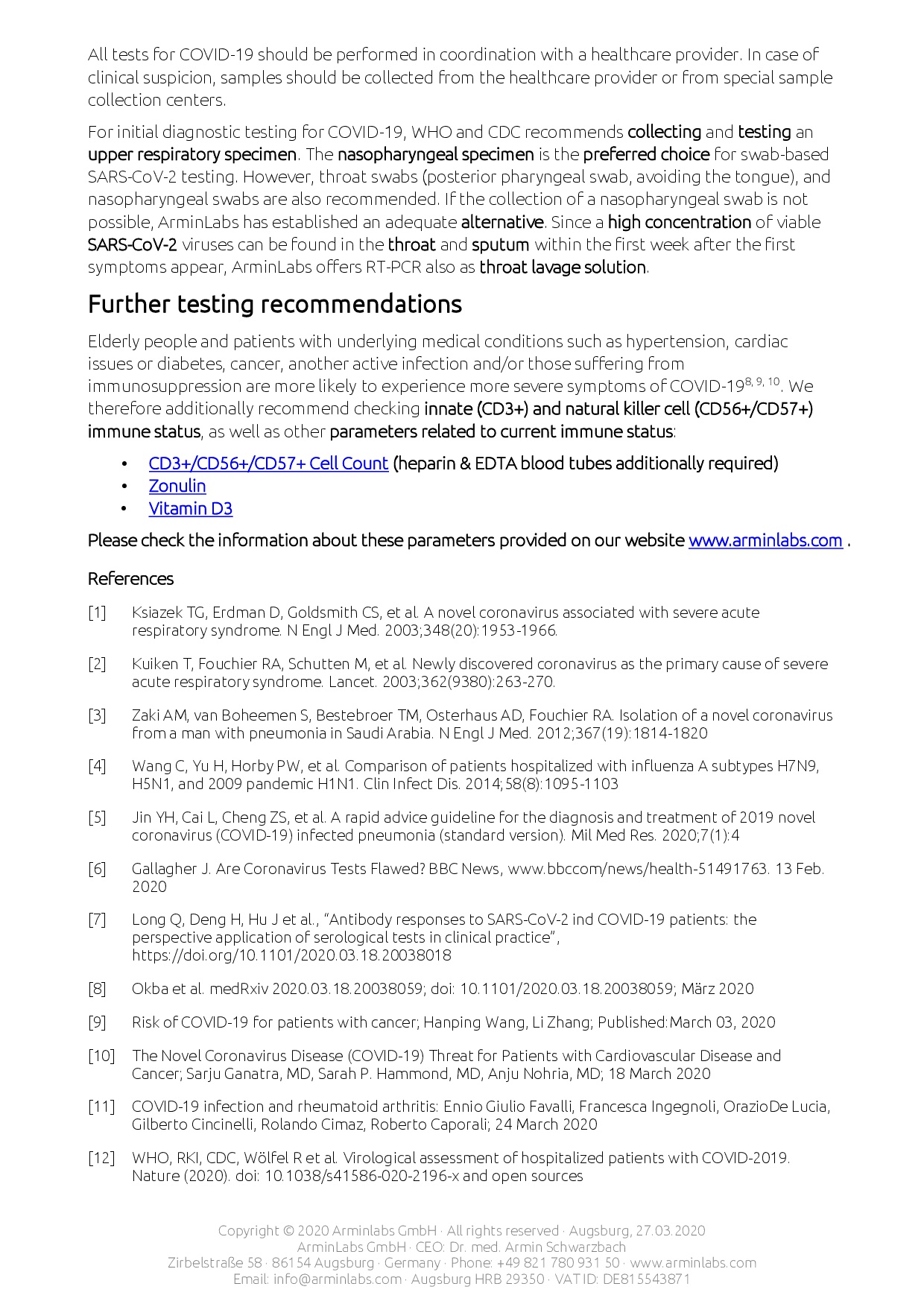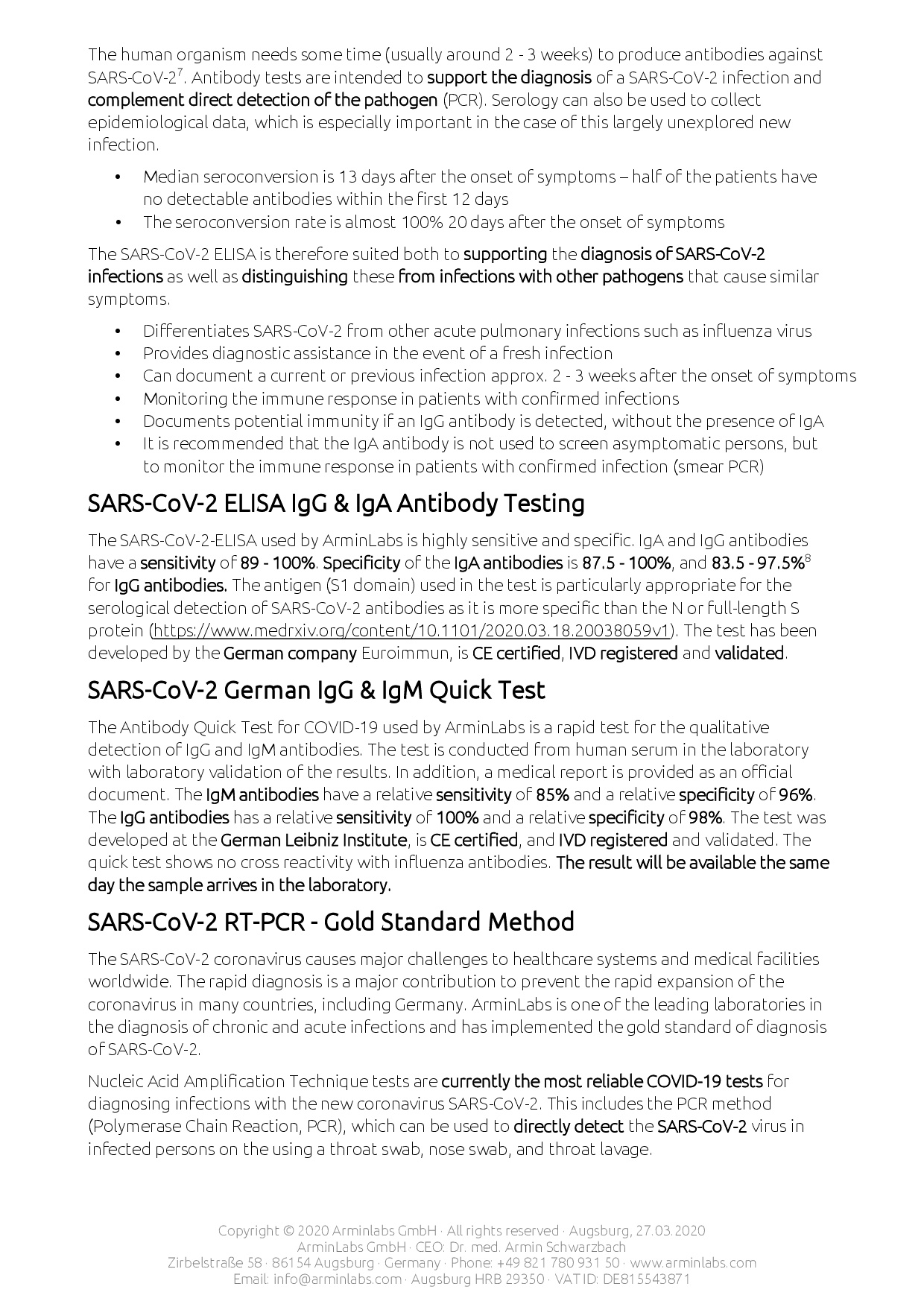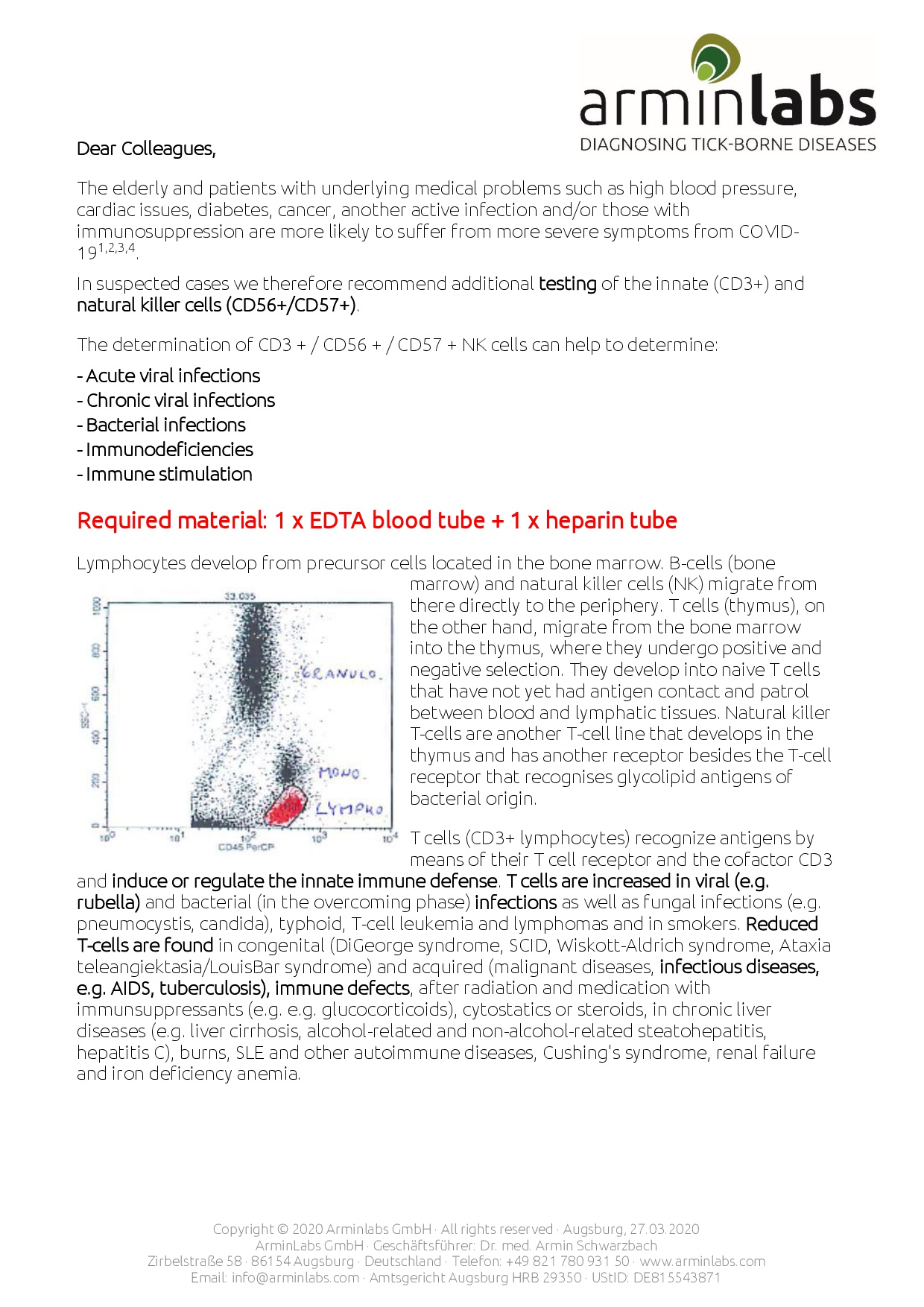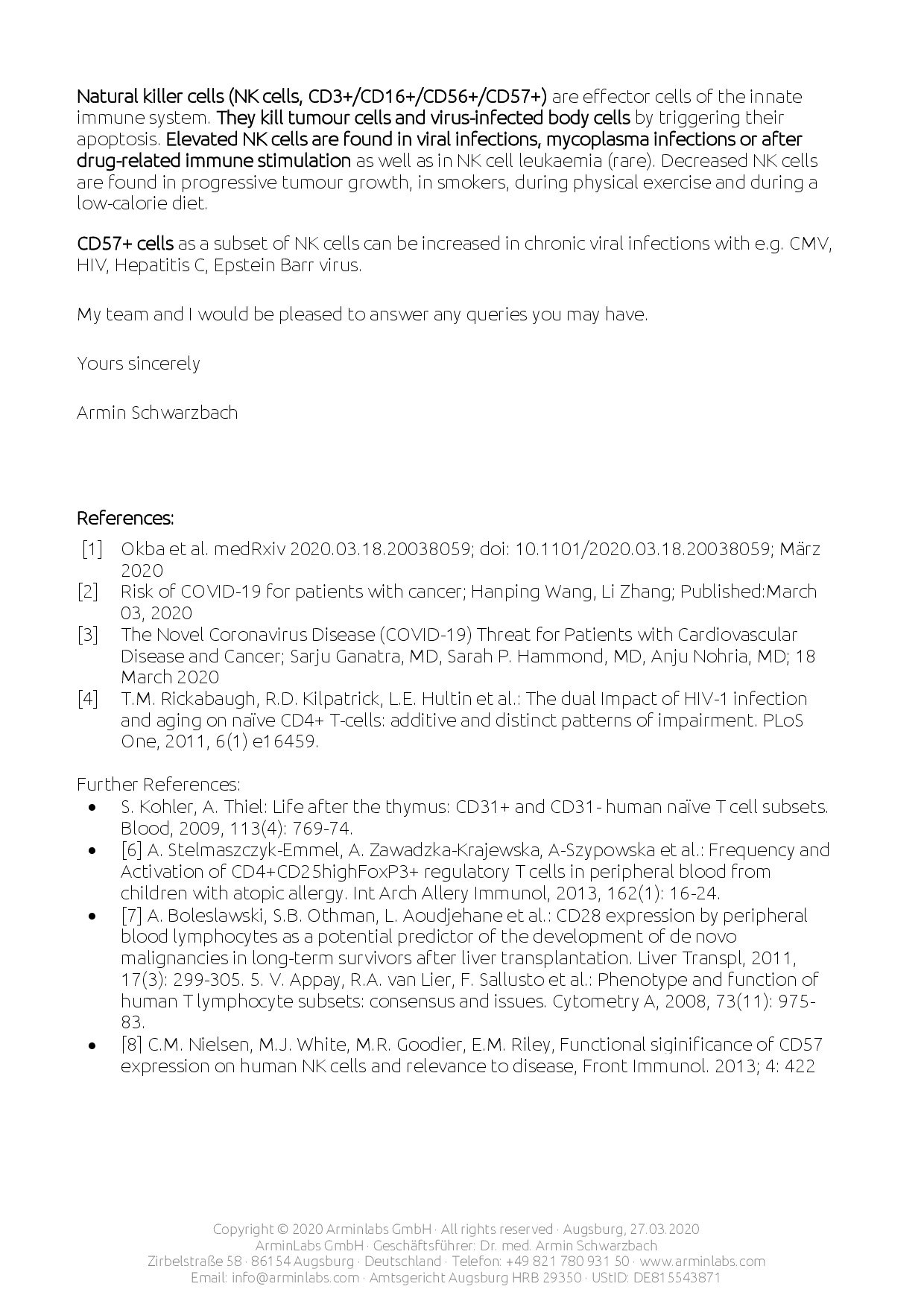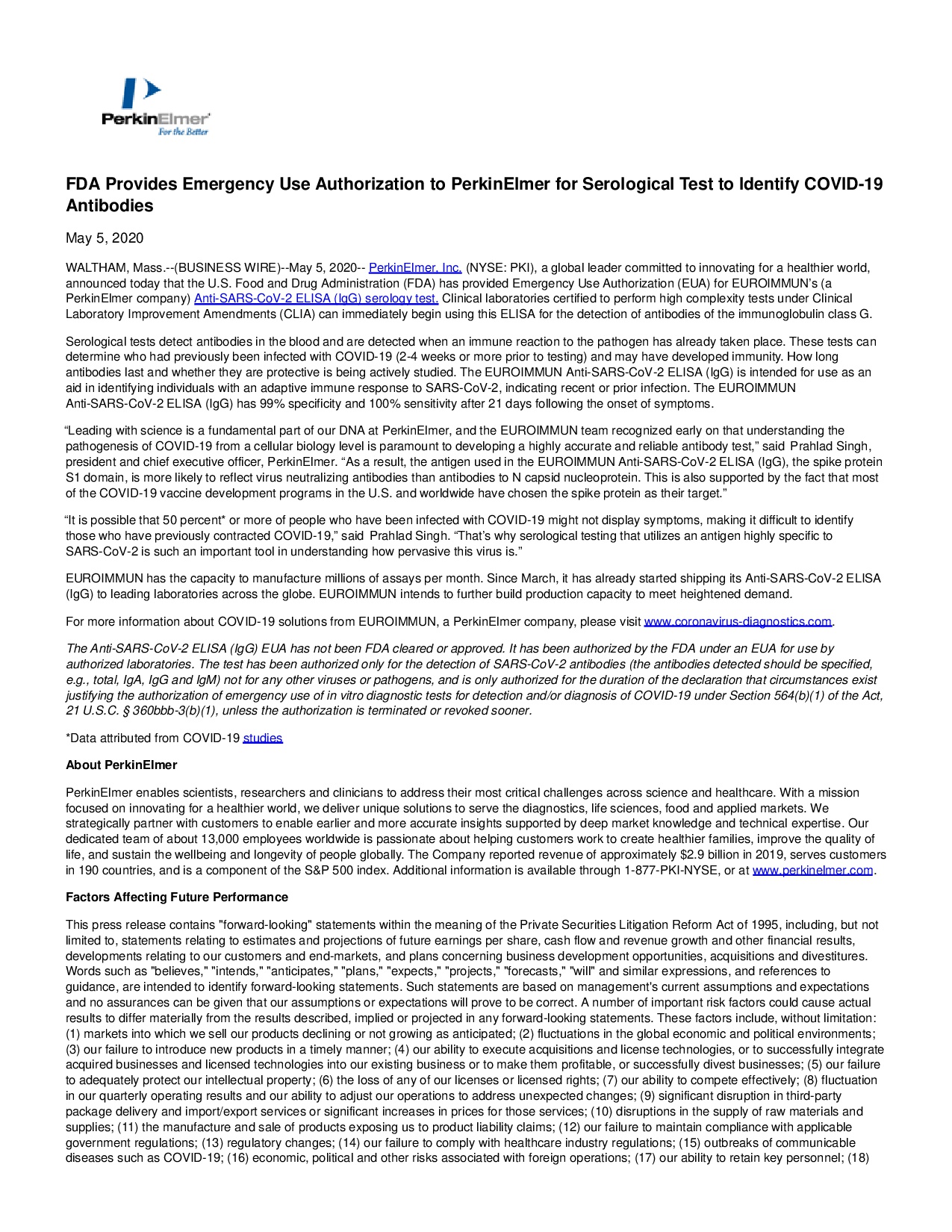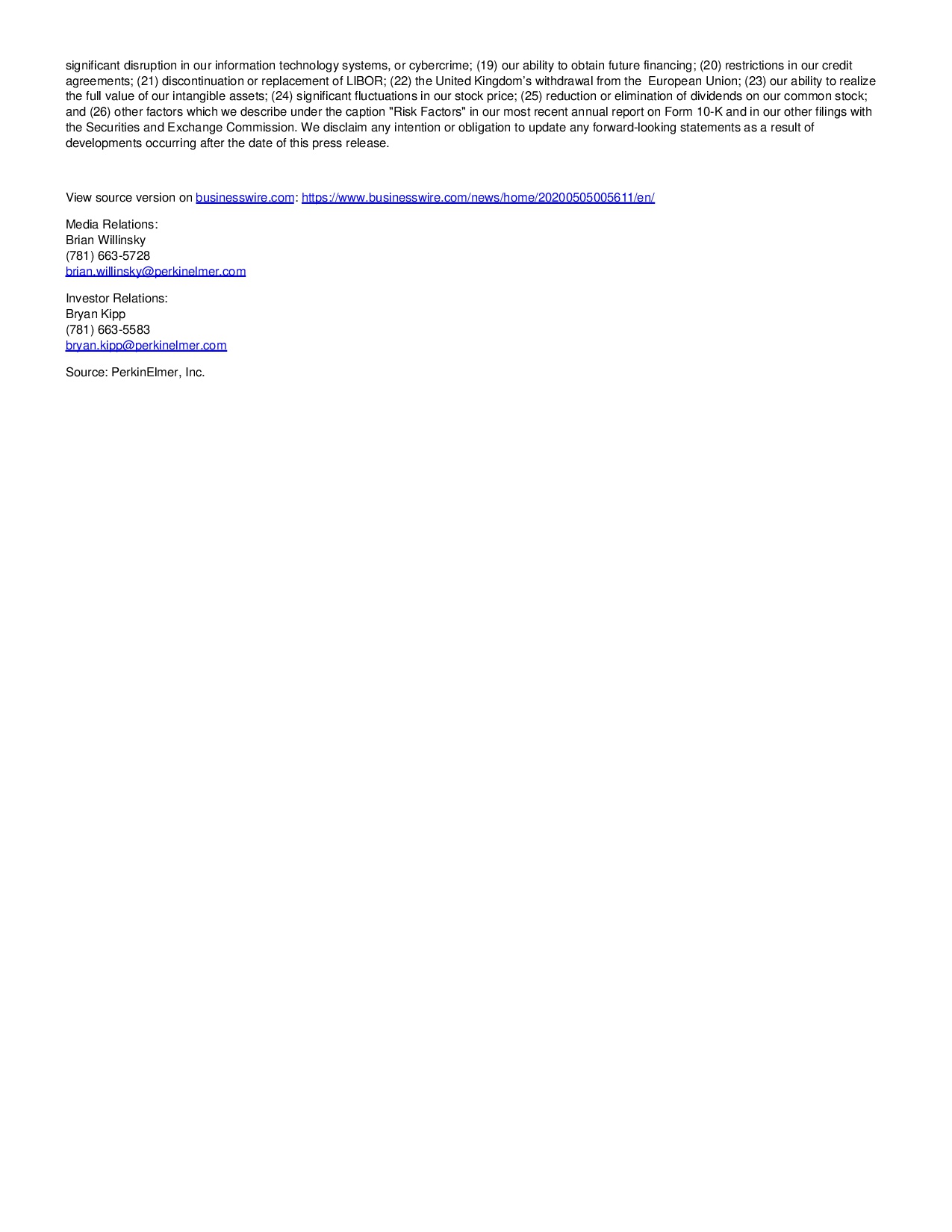COVID-19
TESTING
COVID testing is now regulated by UKAS. AONM works with Zen Health Care Clinic, which is UKAS registered, to provide COVID testing. Please contact us or download the COVID order form for further information. ArminLabs COVID tests are all CE approved and meet UKAS standards.
AONM Interview with Dr. Armin Schwarzbach on his research and approach to COVID-19 testing
COVID-19 TESTiNG
ArminLabs is one of the leading laboratories for specialised virus testing in Europe. After extensive research and counter validation, ArminLabs has introduced a number of tests for SARS-CoV-2 via AONM in the UK and Ireland.
We are following government advice which is not to offer these tests “in community settings”. The tests for SARS-CoV-2 are available only through health professionals who can make assessments in a clinical setting and provide appropriate advice.
AONM will not be able to offer any interpretation of the results beyond what is in the results themselves; guidance will be on the website.
The antibody tests require a blood draw (serum, no centrifuging necessary), except for the IgG/IgM Quick Test if done as a fingerprick test. Existing ArminLabs test kits can be used if you have any, or can otherwise be supplied.
We remind all health professionals to follow government advice (https://www.gov.uk/coronavirus). You should not come into contact with someone known to have the virus. It goes without saying that all appropriate health and safety measures must be followed.
Health professionals please email us at corona@aonm.org or contact us on 03331 210 305 with any queries.
A World First: the CoV-iSpot
Test of innate immunity now available
Recent research has shown that patients infected with SARS-CoV exhibit an innate immune response, and that immunity from
this may be longer lasting than from antibodies.
READ MORE ABOUT IT HERE
Explanation of the different types of SARS-CoV-2 tests available from AONM/ArminLabs
C1. SARS-CoV-2 ELISA IgG and IgA Antibody Testing
This test measures IgG and IgA antibodies against SARS-CoV-2, the virus that causes COVID-19. The test is conducted from serum (SST tube, no centrifuging necessary) at the laboratory in Germany, and a laboratory report is provided as an official document.
Seroconversion takes place with almost 100% certainty after around three weeks.
IgA is commonly seen as more immediate, and reflects antibodies along the mucosal membranes. IgA may appear after 3 days (some reports), but more likely after 10 days. Specificity of the IgA antibodies test is 87.5 – 100%
IgG is the long-term antibody that appears later, and traditionally indicates a degree of immunity (though this is still being studied in the case of this new virus). Specificity of the IgG antibodies test is 83.5 – 97.5%
This test has been developed in Germany and is CE certified and IVD (In Vitro Diagnostics) registered and validated.
The SARS-CoV-2 ELISA can be negative, borderline, or positive, for either or both immunoglobulins.
The result will be ready 1 – 2 days after the sample arrives at the laboratory. The report gives reference ranges and figures (i.e., it is not just reported as positive or negative),
C2. SARS-CoV-2 German IgG & IgM Quick Test, lab evaluation
The SARS-CoV-2 IgG/IgM lab evaluation is a rapid test for the qualitative detection of IgG and IgM antibodies. The test is conducted from serum (SST, no centrifuging necessary) at the laboratory in Germany, with laboratory validation of the results. A laboratory report is provided as an official document.
The IgM antibodies have a relative sensitivity of 85%, and a relative specificity of 96%.
The IgG antibodies have a relative sensitivity of 100%, and a relative specificity of 98%.
The IgG/IgM Quick Test shows no cross-reactivity with influenza antibodies.
The test was developed in Germany and is CE certified as well as IVD registered and validated.
The result is reported as positive or negative and will be available on the same day that the sample arrives in the laboratory.
C3. SARS-CoV-2 German IgG & IgM Quick Test, fingerprick
This is a fingerprick test (lancet provided) that functions rather like a pregnancy test, indicating positive or negative for IgG and/or IgM antibodies, and the results are available within 10 minutes. A medical practitioner must carry out this test to ensure that it is done correctly.
The IgM antibodies have a relative sensitivity of 85%, and a relative specificity of 96%.
The IgG antibodies have a relative sensitivity of 100%, and a relative specificity of 98%.
The test was developed in Germany and is CE certified as well as IVD registered and validated. The Quick Test shows no cross reactivity with influenza antibodies.
C4. Real-Time PCR (Polymerase Chain Reaction) Test
The Nucleic Acid Amplification Technique is the most reliable test for diagnosing current infection with SARS-CoV-2, which is the method used in the Real-Time PCR (Polymerase Chain Reaction). This test can be used to directly detect the SARS-CoV-2 virus in infected persons using a throat swab, nose swab, and/or throat lavage.
This test may be used when your patient is currently showing symptoms of the virus. It should be done right at the start of suffering from symptoms.
There are two ways this test can be carried out:
1) As a nasopharyngeal swab or posterior pharyngeal swab (avoiding the tongue).
2) Because the above is uncomfortable and may be particularly difficult for children, ArminLabs offers RT-PCR as a throat lavage solution. It has been established that a high concentration of SARS-CoV-2 viruses may be found in the throat and sputum within the first week after the first symptoms appear.
The sample needs to be returned to the laboratory for evaluation as soon as it has been obtained via our courier service.
The result is reported as positive or negative and will be available on the same day that the samples arrive at the laboratory.
C5. SARSPLEX – apologies but this test is no longer available for logistical reasons.
For more detailed information please see the ArminLabs documentation below.
ARMINLABS DOCUMENTATION ON DIFFERENT COVID-19 TESTING METHODS
